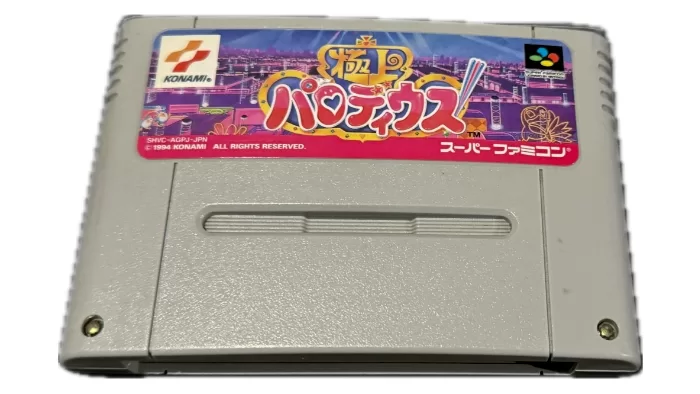
Apple’s recent reversal on allowing console emulator apps on the App Store doesn’t make a lick of change to the way that copyright law works (at least here in Australia).
Important preface: I’m as much of a lawyer as Lionel Hutz is. Happy to hear from actual Australian lawyers on this one. Leave comments below.
Apple surprised many a couple of weeks ago when reversing its stance on emulators on the iOS App Store.
There had been a few that had snuck on — largely as hidden apps, or sometimes as packages of specific older games being emulated, but not with the underlying emulator evident to the end user — but Apple’s position on this was rather firm, until recently.
Of course, it does then take a little time for apps to be actually put up on the iOS App Store, though that’s started happening in the last day or so — even though at least one of them has been pulled — so it’s open season for all, right, even for the stuff I write about weekly as part of retro game of the week?
Not so fast… or at least, not so fast as far as the legal position in Australia is concerned.
Are emulators legal in Australia?

This one is, as far as my legally murky mind can see (see disclaimer note above), at best legally murky. The short answer is that some emulators may be legal, but the games you play on them are in nearly every practical way illegal.
Where an emulator could be shown to have been entirely written from clean code that does not incorporate software elements such as BIOS files, it might pass the legal sniff test, though as far as I can see this hasn’t really been tested within the Australian legal space. Again, happy for any gaming-specific lawyers to correct me there if I’m wrong.
Once you get specific copyrightable software in there — BIOS files being the classic emulator example — then no, that would be an example of copyright infringement unless you somehow got the relevant folks at Sony, Nintendo, Sega et al to give you a copyright waiver.
Spoiler: That won’t happen unless money changes hands, which is why firms like ATGames made all those official Sega emulator consoles a while back. Just asking nicely will not cut it, though it might make someone in the legal departments of those companies laugh at you.
Moreover, what very much is NOT legal is using ROM images of games in nearly every circumstance, because Australian copyright law rather explicitly forbids it.
I wrote about this at some length ages ago over at Lifehacker Australia, and as far as I can see, the legal position here has not changed a single jot.
But what if I own a copy of the game? Isn’t that fair use?

This is my own personal copy of Gokujō Parodius.
I can play it, legally speaking, on a Super Famicom. Nowhere else.
Fair use is a term you’ll see bandied around a lot in these discussions, and it does “feel” as though if you’ve purchased a game, you’ve purchased it and should be able to run it on software platforms that can handle it.
It might “feel” like it… but it’s really, truly not supported in a legal sense, rather specifically for software over and above other forms of copyright protection.
If you own a physical book in Australia and can be bothered to scan in each page and OCR it yourself, that’s a protected option for what’s called “format shifting” as long as you do it yourself and keep the book. Likewise, if you own a CD (remember those?) you’re allowed to rip it to a digital file to listen to on your phone or other devices as long as you retain ownership of the original CD.
Do the same thing for software (even if you did the ROM creation yourself, and let’s be realistic here, this does NOT happen much at all for most emulator users, they just download them from online resources I won’t list here) and it’s a copyright violation.
But maybe you don’t believe me, because “you read it on another site somewhere that it was legal”. The Internet’s a big place, and there’s lots of armchair lawyers, right?
I’ll refer you to this Kotaku Australia piece written by the always wonderful Spandas Lui, where she queried Oliver Smith, an intellectual property and technology lawyer about the legal position of ROMs in Australia You know, someone whose actual job is covering off this exact kind of detail.
On the copyright issue, as per Smith:
“…We need to consider the laws around copyright in computer programs, a form of ‘literary work’ protected by the Australian Copyright Act 1968 (Act). In simple terms, ‘copyright’ is the ‘right’ to ‘copy’. For the most part, that means a person (or in this case company) that owns copyright in a literary work, has the right to choose how and to whom a copy of that work is made available.
“If you use the cartridge to create a ROM image, you are making a copy of the game. That’s not permitted under the Act, because copyright is the exclusive right to do acts comprised in the copyright in the work.”
And on format shifting, for most of the emulators that are likely to pop up on the App Store, the format shifting exception isn’t likely to be legal either. Again, as per Smith:
This exception doesn’t apply if the data in the ROM cartridge ‘decompiled’ to create the back-up, or if the owner has so designed the program that copies of it cannot be made without modification.
“Arguably, if the original might one day be a collectible, there is some merit to an argument that the ROM image is made so that the original can be stored away. But this is probably the exception rather than the rule. It would be harder to argue in our hypothetical that the ROM image was really made for the purpose of a back-up and not just so it can be played on a different device.”
This article at SprintLaw does talk a little around some of the fair dealing exceptions, but they’re not really likely to cover you unless you’d like to argue that you were playing Super Mario World on your iPhone for the purposes of satire or research.
I am (I feel like I’m saying this a lot, and with reason) not a lawyer, but working out your speed run times on Super Mario World almost certainly doesn’t count as “research” for the purposes of those exemptions.
There are exemptions to all of this, by the way if the original and clearly defined copyright holder waives their copyright entirely, as is sometimes the case with games developed for these platforms years after they were relevant.
If a game author gives their copyright away freely for their GameBoy platform game made in 2015, then that should be perfectly fine.
For a more commercial example, it’s my understanding (*not a lawyer, again) that the Vectrex game library is similarly free from copyright restraints in the same way.
What are the risks with using ROMs, really?

It’s a somewhat hard question to answer in one sense. Certainly there doesn’t seem to be a lot of case examples of Australians ending up in court for playing emulators, and this is an activity that for sure happens a whole lot already outside of the iOS space.
But just because it doesn’t happen doesn’t mean it can’t; it primarily means that either companies aren’t chasing it or don’t figure it’s worth it.
There certainly are examples of companies such as Nitendo chasing down pirates who made copies of games available for then-current platforms.
There’s certainly penalties in place around potential damages that could be brought into play. With the rise of a lot of retro game compilations coming out — fare like the Turtles Cowabunga Collection, the Monty Mole Collection and more — there’d also be, I’d think, an easier way to “prove” damages if a firm were so inclined.
Does the law need changing to cover those of us who do legimately already own these games to use them as we see fit? I’d argue that it totally does — but that’s certainly not the case right now.
Was this review useful to you? Support independent media by dropping a dollar or two in the tip jar below!









